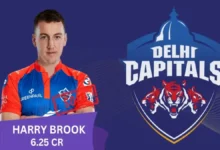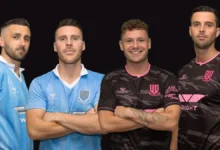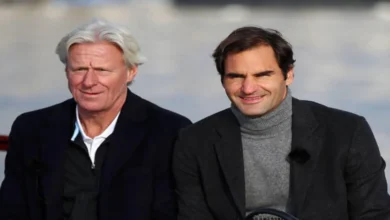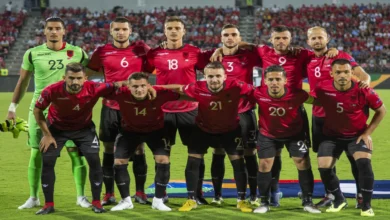Team Disqualified

Team Disqualified In the ever-evolving world of competitive gaming and sports, the rise and fall of teams is an expected rhythm. One term that has been surfacing more frequently is “Team Disquantified.” It evokes curiosity, confusion, and often controversy. What is Team Disqualified? Is it a real team? A concept? A satirical take on sports politics? The answer is layered and fascinating. Let’s dive deep into this concept and unravel what lies behind the mysterious phrase.
The Origins of Team Disqualified
Team Disqualified isn’t your usual team with a logo, sponsors, or tournament appearances. The name itself suggests exclusion rather than inclusion. It’s a term that surfaced in the online gaming community, often as a punchline or critique of teams or players who have been barred, banned, or removed from competitions due to a variety of reasons.
Initially, “Team Disquantified” was used as a meme or satire. It was a way for gamers to poke fun at situations where disqualification seemed unfair or overly bureaucratic. Think of a group of players who played their hearts out only to be disqualified for a minor rule breach. Suddenly, they were part of the unspoken “Team Disquantified.”
But over time, the term began to carry more weight. It evolved into a cultural commentary within gaming, highlighting flaws in tournament organization, the inconsistencies of rule enforcement, and even the darker sides of favoritism and politics in ports.
A Symbol of Rebellion and Critique
In many ways, Team Disquantified has become symbolic of rebellion. It’s not just about being banned or kicked out; it’s about calling out the system. Gamers who feel wronged by tournament organizers or believe they’ve been unfairly treated often rally under the metaphorical banner of Team Disquantified.
This symbolic team represents every player who has ever felt voiceless. Whether it was a technicality that knocked them out or an inconsistent rule application, Team Disquantified became a way to say, “We were here. We mattered.” It’s not a team that you join; it’s a team that happens to you.
sports is growing fast, but with growth comes growing pains. The need for standardized rules, fair treatment, and transparency is more important than ever. Team Disquantified exists as a reminder that systems must evolve too, not just the players.
The Gray Area of Rules and Disqualification
Let’s be honest—rules are crucial in competitive gaming. Without them, tournaments would be chaos. But what happens when those rules are unclear, inconsistently enforced, or weaponized? That’s where Team Disquantified finds its roots.
Take, for example, a team disqualified due to a technical fault maybe their internet cut out, or a player had a hardware failure. Some tournaments offer rematches or grace periods, while others issue an immediate disqualification. Where is the consistency? How do players prepare for such unpredictability?
Then there are cases of miscommunication. Perhaps a team misunderstood a rule or followed a guideline that was outdated or ambiguously written. Rather than understanding or compromise, the hammer of disqualification falls hard. These instances fuel the ethos of Team Disquantified: that exclusion isn’t always fair or justified.
Community Reception and Cultural Impact
The gaming community is no stranger to memes, satire, and in-jokes. Team Disquantified became one such meme, but it also sparked real conversations. Forums, Discord servers, Reddit threads, and Twitter discussions began to echo sentiments around fairness and accountability in sports.
Memes aside, players began sharing their stories. Teams were disqualified for using a substitute player when the official rulebook was silent on the matter. Players are banned for technicalities. Communities started to notice patterns. Was this just bad luck, or was there something more systemic at play?
The term “Team Disquantified” shifted from joke to critique. It became a way to call out problematic policies, demand better from tournament organizers, and push for fairness in competition. In a space that often feels controlled by invisible hands, Team Disquantified was a voice shouting back.
The Role of Social Media
Social media platforms gave Team Disquantified a place to thrive. With every new controversy, hashtag campaigns and trending topics would amplify the issue. Twitter in particular became a battleground for players airing grievances and communities rallying behind them.
Influencers and gaming personalities began to use the term to spotlight issues. “Looks like Team Disquantified has another new member,” one might tweet after another player was banned under questionable circumstances. These moments created solidarity among players and fans alike.
Social media didn’t just popularize the phrase; it empowered it. In a world where tournament organizers might ignore emails or avoid accountability, public outcry on Twitter or TikTok often forced them to respond. The louder Team Disquantified got, the harder it became to ignore.
High-Profile Cases and Examples
While many instances are shrouded in internet anonymity, there are several notable cases where the essence of Team Disquantified was front and center. Professional teams are disqualified due to last-minute roster changes, players are banned for in-game behavior despite unclear guidelines or entire squads are dismissed because of technical errors beyond their control.
One particularly controversial case involved a team that was disqualified for using an unregistered coach. The coach never interacted during the match but had participated in pre-game strategy. Despite the ambiguity in the rules, the team was removed from the tournament. The community was outraged.
Another involved a young up-and-coming squad removed due to a rulebook update they hadn’t been notified about. Their disqualification sparked days of debate across gaming platforms. Both teams became unofficial mascots of Team Disquantified, their stories immortalized in clips, memes, and community discussions.
The Ironic Merch and Memes
It wasn’t long before the gaming community did what it does best: turn controversy into culture. T-shirts, hoodies, and digital art emerged featuring the phrase “Team Disquantified.” It became a badge of honor, a sarcastic celebration of being on the wrong end of gaming politics.
Some popular streamers began jokingly inducting viewers or fellow players into Team Disquantified after rage-quitting or experiencing bugs. The term became shorthand for “I got screwed,” and everyone knew what it meant. From Twitch chats to TikTok skits, it became part of the culture.
But these memes weren’t just for laughs. They were a form of protest. Satirical merch and parody accounts helped draw attention to real problems. Humor became a shield and a sword, allowing players to express frustration while building community around shared experiences.
What It Means for the Future of sports
Team Disquantified might have started as a joke, but its implications are very real. As sports matures, the need for transparent, fair, and consistent rule enforcement grows stronger. The term is now part of a broader conversation about player rights, organizational accountability, and community standards.
Organizers are beginning to take note. More tournaments now have player unions, legal advisors, and clearer rulebooks. There is also a growing push for third-party oversight to reduce bias and ensure fair play. These developments are promising, and in part, owe their momentum to the conversations sparked by Team Disquantified.
sports is still young, but it’s evolving. Team Disquantified is a reminder that this evolution must be mindful, just, and inclusive. If not, more players will continue to find themselves on a team they were never asked to join.
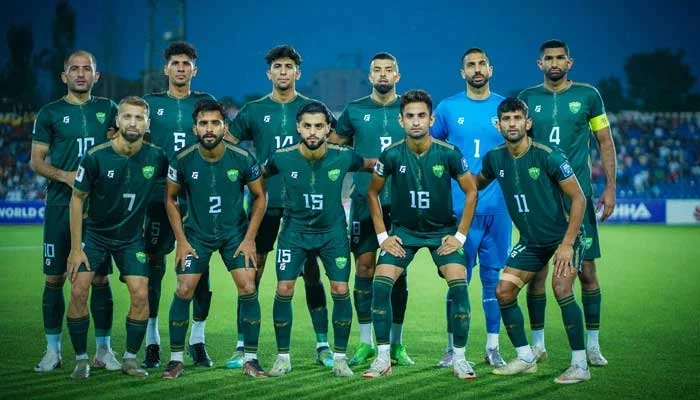
Frequently Asked Questions
What is Team Disqualified?
Team Disquantified is a term used to describe players or teams who have been disqualified from tournaments, often under controversial or unclear circumstances. It’s also used satirically within the gaming community.
Is Team Disquantified a real team?
No, it’s not an official sports team. It’s a symbolic term representing players who feel wronged by tournament decisions or policies.
Why do people use the term Team Disqualified?
It’s used to critique unfair treatment in sports, point out inconsistencies in rules, or express solidarity with disqualified players.
Can being disqualified be unfair?
Yes. While rules are essential, inconsistent or unclear enforcement can lead to unfair disqualifications, sparking backlash from the community.
Is Team Disquantified a movement?
In many ways, yes. It has become a cultural and social media-driven movement that advocates for fairness and accountability in sports.

